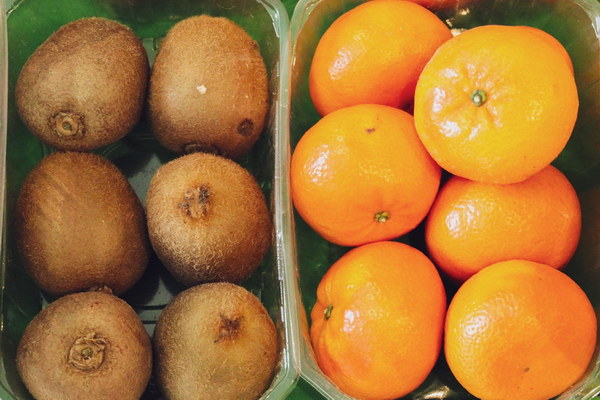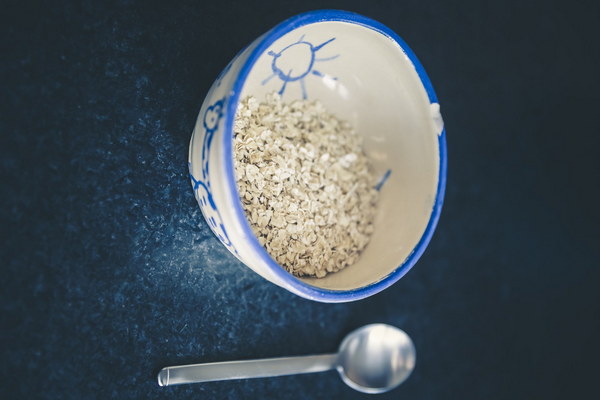Revitalize Your Lungs Discover the Benefits of Traditional Chinese Medicine for Phlegm and Dampness Relief
In the realm of traditional Chinese medicine (TCM), the concept of balancing the body's internal environment is paramount. One common issue that many people face is the accumulation of phlegm and dampness, which can lead to various respiratory and digestive problems. To combat this, TCM offers a variety of herbal remedies and formulas designed to expel phlegm, alleviate dampness, and nourish the lungs. This article will delve into the world of TCM and explore the benefits of these natural, time-tested remedies.
Understanding Phlegm and Dampness in TCM
In TCM, phlegm and dampness are considered to be two distinct but often interrelated pathological factors that can disrupt the body's balance. Phlegm is a sticky, thick substance that can accumulate in the respiratory tract, leading to symptoms such as cough, wheezing, and chest tightness. Dampness, on the other hand, refers to an excess of moisture in the body, which can lead to symptoms like fatigue, bloating, and digestive issues.
The root cause of phlegm and dampness is often a combination of external factors, such as cold weather, humidity, and poor diet, as well as internal factors, such as a weakened spleen and lung function.
Traditional Chinese Medicines for Phlegm and Dampness Relief

To address these issues, TCM utilizes a variety of herbal formulas and natural remedies that have been used for centuries. Here are some of the most commonly used TCMs for phlegm and dampness relief:
1. Er Chen Tang (Bupleurum and Scutellaria Decoction): This formula is designed to drain dampness and transform phlegm, making it an excellent choice for those with symptoms such as cough, asthma, and chest congestion.
2. Ling Gan Wan (Fritillaria and Scrophularia Pill): This herbal formula focuses on clearing heat and transforming phlegm, making it particularly beneficial for those with symptoms such as dry cough, sore throat, and fever.
3. Bu Fei San (Break Phlegm Powder): This powdered herbal formula is used to expel phlegm and relieve chest discomfort. It is often recommended for those with chronic bronchitis, asthma, and other respiratory conditions.
4. Si Miao San (Four Herbs Powder): This herbal powder is a blend of four natural ingredients that work together to drain dampness, transform phlegm, and nourish the lungs. It is often used for those with symptoms such as fatigue, bloating, and digestive issues.
5. Chuan Bei Mi Wan (Cinnamon and Licorice Pill): This formula is used to warm the lungs and expel cold, making it suitable for those with symptoms such as chronic cough, colds, and flu.
How These Remedies Work
The herbs used in these formulas work in various ways to address the root cause of phlegm and dampness. For example, some herbs can help to improve lung function, while others can boost the spleen's ability to transform and transport fluids. Additionally, certain herbs have anti-inflammatory properties, which can help to reduce swelling and alleviate symptoms such as cough and chest pain.
Benefits of TCM for Phlegm and Dampness Relief
There are several benefits to using TCM for the treatment of phlegm and dampness:
1. Natural and Safe: TCM remedies are made from natural, plant-based ingredients, making them a safe and gentle option for those seeking relief from their symptoms.
2. Holistic Approach: TCM focuses on treating the whole person, not just the symptoms. This holistic approach ensures that the root cause of the problem is addressed, leading to long-term relief and improved overall health.
3. Customizable: TCM practitioners can tailor formulas to individual needs, taking into account factors such as age, gender, and overall health.
4. Complementary: TCM can be used in conjunction with other treatments, such as Western medicine, to provide a more comprehensive approach to healing.
In conclusion, traditional Chinese medicine offers a wealth of natural remedies for those suffering from phlegm and dampness. By addressing the root cause of these issues, TCM can provide relief from a variety of symptoms and promote overall health and well-being. If you are interested in exploring TCM as a treatment option for phlegm and dampness, consider consulting with a qualified TCM practitioner to find the right formula for you.









